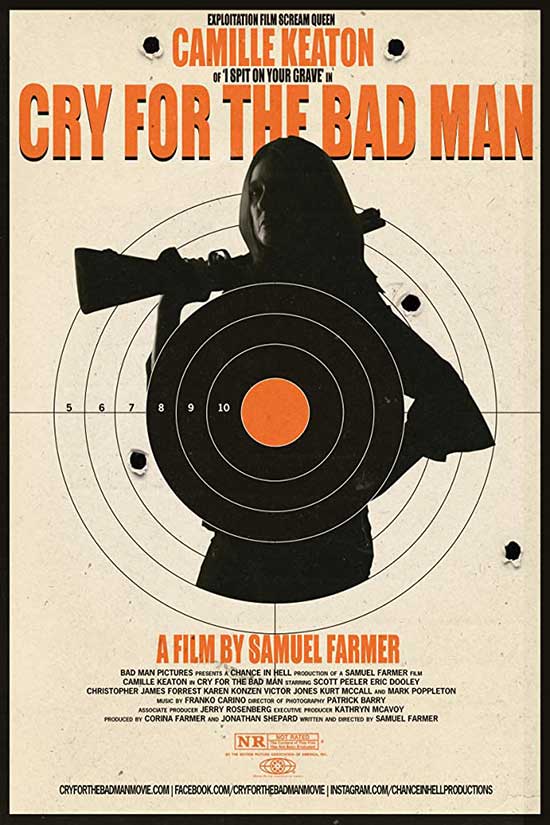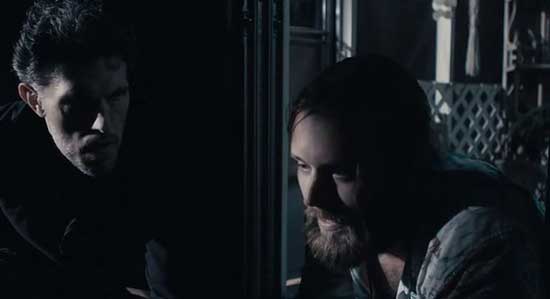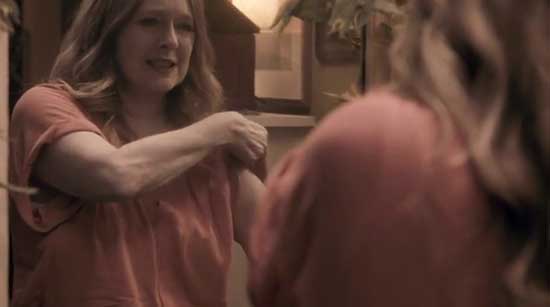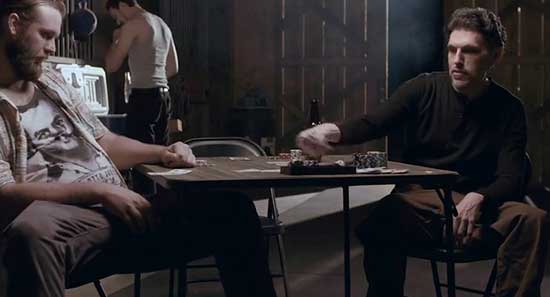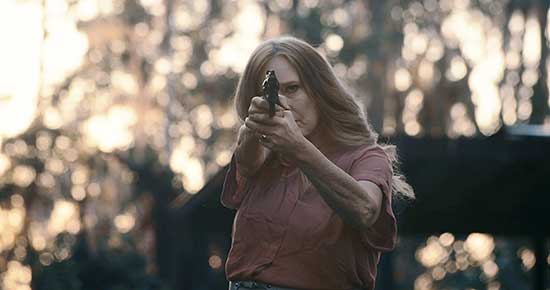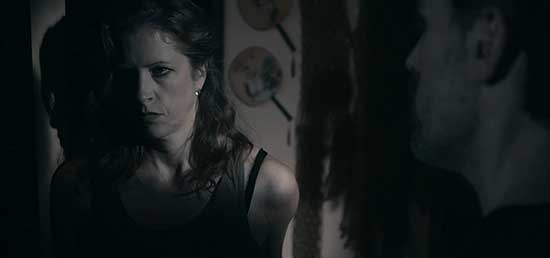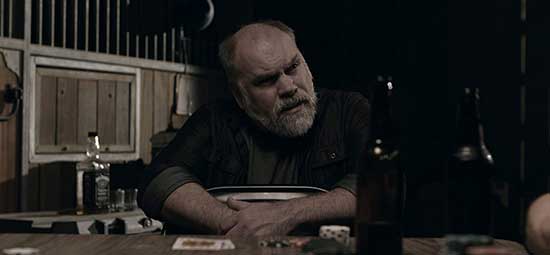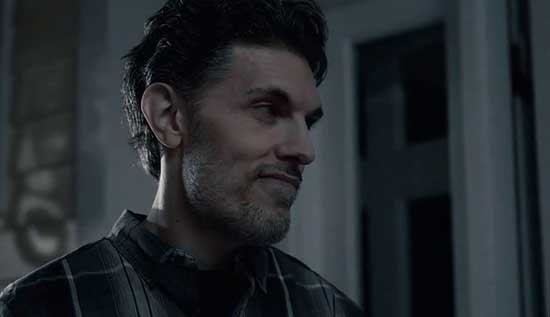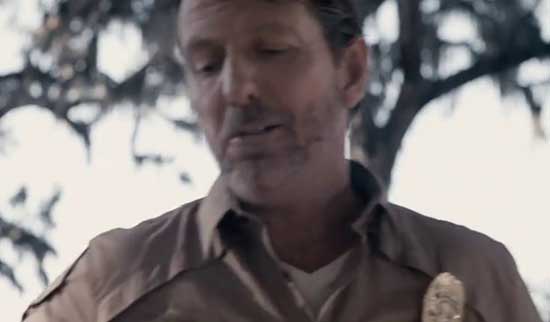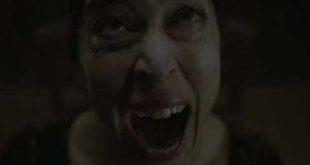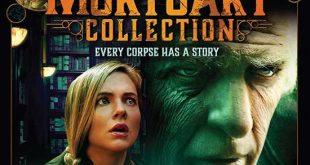SYNOPSIS:
A small town widow (Camille Keaton) faces a grisly confrontation with her would-be extortionists.
REVIEW:
There’s often something about a good underdog movie that really speaks to its audience; seeing a charismatic protagonist overcoming the odds in a fight against nefarious villains can be a real fist-pumping moment, especially if they have the moral high ground. Movies like this have been around for decades, not least during the grindhouse era boom of the 1970s: one of the most well-known of them all being 1978’s I Spit On Your Grave, the infamous low-budget exploitation flick which sees an aspiring female writer being gang-raped and abused by a pack of men, before wreaking her well-deserved revenge in gory fashion. Said writer was played by Camille Keaton – which brings us full circle to Cry For The Bad Man, a 2019 movie which sees Keaton play Marsha Kane, a tragic widow in a small town hoping to grieve in peace after the death of her husband.
Cry For The Bad Man comes to us from writer and director Samuel Farmer. The film opens with a cryptic, very nicely shot slow-motion sequence which sees a woman – wearing a wedding ring – cleaning up blood and feathers in what would appear to be her marital bedroom. A quick skip to six months later, and we find Marsha drinking alone in the house she shared with her husband, before an unwelcome late-night visit from three brothers. These three – Derrek, Wayne and Billy Junior MacMohan – bring a proposal from their father Bill, a local developer who wants her property. Straight away we see that the brothers have no respect for the law – and will go to any lengths to get what they want. Threats of violence however, hold little weight with Marsha – and she’s plenty tough enough to take the fight back to the brothers.
We’ve all probably seen enough films of this type by now to know what’s in store; shady cops, cat-and-mouse stalking, traded gunfire in dimly lit sets – and we get the whole gamut with Cry For The Bad Man. It runs at a very lean hour and fourteen minutes, and Farmer’s script wastes very little time in getting down to the action. There’s refreshingly little exposition – we learn just as much as we need to know about Marsha and her situation and no more. The script is a little meandering in places, but there’s some juicy dialogue that the characters mostly put across effectively (much of it by Scott Peeler, who brings slimy douchebag and head brother Wayne to life very effectively).
Unfortunately Keaton is particularly wooden and unsympathetic as Marsha – many of her lines are delivered in a very stagey, unconvincing manner, which doesn’t really endear her character to us.
It’s a surprisingly amateurish performance from an actor who, as well as starring in one of the most notorious exploitation movies of all time – the aforementioned I Spit On Your Grave – has worked pretty consistently in Hollywood for decades, particularly since a post-millenium revival of sorts. It’s worth pointing out though, that Spit isn’t – and never was – all that great of a movie itself, being famous more for its sensationalist gore than its screenplay or acting quality; Cry For The Bad Man is arguably a much slicker production overall. Scott Peeler takes the performance honours here as Wayne, but he is run down to the wire by Karen Konzen as Marsha’s no-nonsense daughter Helen.
The action, which kicks off pretty quickly, has its moments; but the tiny budget of around $50,000 starts to show its limits when we’re asked to buy an obviously bandaged and bloodied hand as a blasted-off stump, although some of the other effects that don’t linger on the screen for long are more convincing. The whole movie takes place largely on one set – Marsha’s house – and Farmer moves his camera skilfully around it, giving us a convincing sense of space around the action. Unfortunately the uneven performances and occasionally shoddy special effects conspire to derail the movie somewhat; but in its favour the story clips along well, there are only a handful of scenes that drag on a little too long and Farmer does succeed in capturing the sleazy grindhouse vibe of the movies that have clearly inspired him.
 Horror News | HNN Official Site | Horror Movies,Trailers, Reviews
Horror News | HNN Official Site | Horror Movies,Trailers, Reviews
